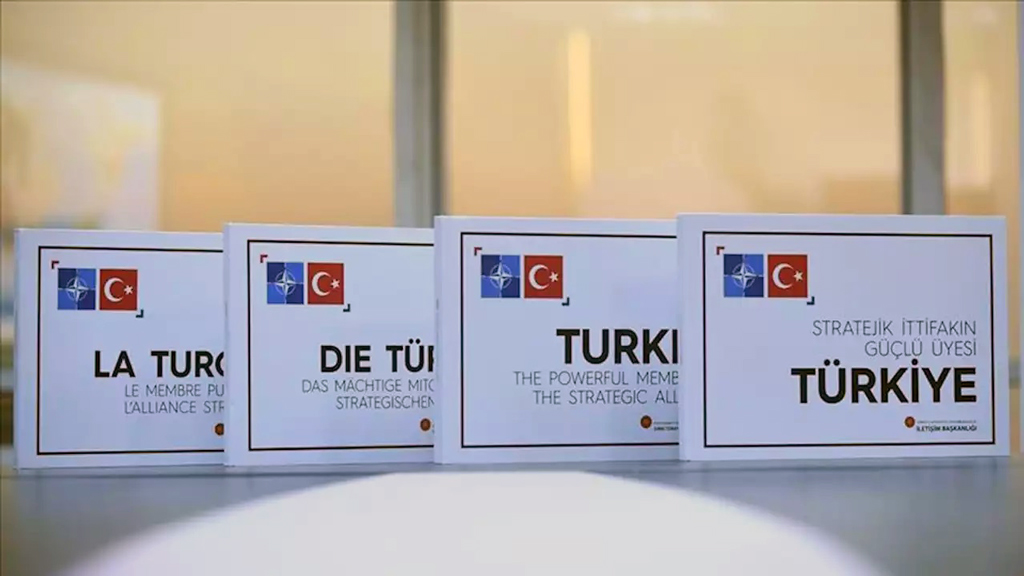[Daily Sabah, 11 February 2020]

The sole axis of Turkey's foreign policy
There is an ongoing debate on Turkey's foreign policy decisions vis-a-vis the brewing crisis in Idlib. A rhetorical whirlpool has emerged around tensions with Russia, the significance of U.S. and EU statements, and Turkey's homework for Idlib.
Share
There is an ongoing debate on Turkey's foreign policy decisions vis-a-vis the brewing crisis in Idlib. A rhetorical whirlpool has emerged around tensions with Russia, the significance of U.S. and EU statements, and Turkey's homework for Idlib.
Some observers regard Turkey's commitment to stopping the Bashar Assad regime's most recent act of aggression as throwing the country's weight behind Hayat Tahrir al-Sham (HTS) and other radical groups in Idlib. They ask why Turkey would have anything to do with "jihadists." Others say that Turkey would need to clash with the HTS and other radical groups in order to establish a safe zone in Idlib and ask why Turkish troops should clear the area for the Assad regime.
Although most of the usual advocates of dialogue with Bashar Assad have kept their silence since the death of eight Turkish soldiers in a regime attack, others still insist on direct talks.
To be clear, it is only natural to have a public debate on foreign policy and a multitude of competing road maps in a democracy. At the heart of this endeavor is an effort to articulate what the national interest really is. After all, all countries reach foreign policy decisions with an eye on maximizing their respective national interest.
The opposition's responses to the Idlib crisis, however, operate on the more fundamental level of decisions about the nature of Turkey's relationship with the U.S., the EU and Russia.
Part of the opposition has called on Turkey's government to repair its relations with the West, i.e. the U.S. and the EU, or Syria. Others urge policymakers not to let the U.S. get in the way of Turkey's "strategic" relationship with Russia. Indeed, some opposition figures go as far as openly threatening President Recep Tayyip Erdoğan over this issue.
The opposition's commitment to turn the Idlib question into a battle between pro-American and pro-Russian views is an anomaly unique to Turkey. There are many groups here that would rather work as lobbyists for foreign governments than pursue Turkey's own national interest. Such individuals and groups tend to present the public a choice between two mutually exclusive options, assuming that the conduct of foreign policy requires a firm "axis" or the endorsement of a great power.
Let us finally agree on the following:
As the U.S. redefines its global role, there is no such thing as the liberal world order any more. International organizations experience more serious problems today than they did in the past. A new, multipolar world is emerging on the back of great power competition. There is no single axis, alliance or great power that can offer to solve all of a given country's problems.
Indeed, cooperation with great powers often leads to asymmetrical relationships. Countries like Turkey, however, must accurately analyze emerging global trends and take the necessary risks to seize opportunities. The search for a safe haven is obsolete. That search makes even less sense in Turkey's neighborhood, where geopolitical conflict and tensions are the names of the game. A number of countries, including Ukraine, Iran, Greece, Egypt and the Gulf states attempt to adapt to this new reality. Due to its domestic political structures and the problems in its neighborhood, Turkey cannot afford to live with one-sided dependence.
There is a difference between strategic relations and one-sided dependence. The "strategic ties" that Turkey wants to have with the U.S. and Russia are vulnerable to tensions precisely because there is no room in them for one-sided dependence.
Could Turkey stop fighting terrorist groups like the PKK or the Gülenist Terror Group (FETÖ) just to avoid tensions with the U.S.? Could we possibly give up on nuclear power or our domestic defense industry? The answer is no.
The same goes for Russia. Can the Turks watch millions of refugees from Idlib cross their southern border to appease the Russians? Can we turn a blind eye to the Assad regime's threats against Turkish national security? Again, the answer is negative.
It makes sense to promote balance, rationality and the right choices for Turkey in bilateral relations. In today's world, however, a strategic partnership does not necessarily mean opting for an ideological bloc. One-sided dependence, in turn, would eventually force us to stop pursuing our vital interests. Therefore, Turkey cannot listen to ideologically charged rhetoric from pro-American, pro-Russian, pro-Iranian or pro-Gulf lobbyists.
Lobbyists and others are searching for a safe haven now out of fear of a chaotic new world. Yet, it takes as much resistance and fighting spirit as reconciliation to survive in this environment. National interest is the sole axis of Turkey's foreign policy.
Tags »
Related Articles






